India’s Parliament gears up for intense discussions following recent security incidents that shook the nation. The Pahalgam attack becomes the focal point of the upcoming legislative sessions after initial procedural chaos. Political parties across the spectrum demand comprehensive answers regarding national security failures and preventive measures.
Understanding the Context Behind Parliamentary Disruptions
The first week of the current session witnessed unprecedented disruptions that prevented meaningful legislative business. Opposition parties staged walkouts and raised slogans demanding immediate discussions about recent security breaches. Parliamentary proceedings came to a complete standstill as tensions escalated between the ruling and opposition benches.
Security concerns dominate political discourse as lawmakers prepare for substantive debates ahead. The attack in Pahalgam has raised serious questions about intelligence failures and border management effectiveness. Political leaders from various parties unite to demand accountability from security agencies and government officials.
Recent events have highlighted vulnerabilities in India’s security apparatus that require immediate attention and reform. The timing of these incidents coincides with heightened tensions in the region, making parliamentary oversight crucial. Democratic institutions must address these challenges through transparent debate and comprehensive policy solutions.
Key Issues Expected During Upcoming Debates
Parliamentary discussions will likely focus on several critical aspects of national security and counter-terrorism strategies. Opposition parties have prepared detailed questions about intelligence gathering, border security protocols, and response mechanisms. The ruling party faces pressure to provide satisfactory explanations regarding preventive measures and future security plans.
Security experts anticipate discussions will cover:
- Intelligence coordination between different agencies and departments
- Border management protocols and surveillance technology upgrades
- Counter-terrorism strategies and their implementation effectiveness
- Resource allocation for security forces and equipment modernisation
- Coordination mechanisms between central and state security agencies
The Pahalgam attack specifically raises questions about tourist area security and civilian protection measures. Popular destinations in sensitive regions require enhanced security protocols without compromising visitor experiences. Balancing tourism promotion with security concerns presents complex challenges for policymakers.
Political Dynamics and Party Positions
Opposition parties have coordinated their strategy to ensure maximum pressure on the government during debates. Congress leaders, regional parties, and other opposition groups plan to raise pointed questions about security lapses. They demand a comprehensive statement from the Home Minister regarding recent incidents and future prevention strategies.
The ruling party prepares to defend its security record while acknowledging areas needing improvement. Government spokespersons emphasise ongoing efforts to strengthen border security and intelligence capabilities. They highlight recent investments in technology and personnel training to address emerging security challenges.
Regional parties from affected areas bring unique perspectives to these discussions based on ground-level experiences. Their inputs regarding local security conditions and community concerns add valuable dimensions to national policy debates. Cross-party cooperation becomes essential for developing effective solutions to complex security challenges.
Op Sindoor and Military Response Strategies
Military operations like Op Sindoor demonstrate India’s commitment to addressing security threats through coordinated responses. These operations involve multiple agencies working together to neutralise threats and prevent future incidents. Parliamentary oversight ensures these operations maintain democratic accountability while achieving security objectives.
Defence experts will likely discuss operational strategies, resource requirements, and success metrics during parliamentary sessions. Transparency in military operations requires a careful balance between public accountability and operational security needs. Lawmakers must understand operational constraints while ensuring adequate oversight of security spending and strategic decisions.
The effectiveness of recent military responses will undergo scrutiny as Parliament examines overall security preparedness. Success stories and areas needing improvement both require honest assessment to strengthen future capabilities. Democratic institutions play crucial roles in ensuring security policies serve national interests effectively.
Public Expectations and Democratic Accountability
Citizens expect their elected representatives to address security concerns through substantive policy discussions and reforms. Parliamentary debates provide platforms for examining government performance and proposing alternative approaches to security challenges. Transparent discussions help build public confidence in democratic institutions and security agencies.
Media coverage of parliamentary proceedings will influence public opinion regarding government responses to security threats. Constructive debates that focus on solutions rather than political point-scoring serve national interests better. Citizens deserve honest assessments of security challenges and realistic timelines for implementing necessary reforms.
Civil society organisations and security experts contribute valuable insights to public discourse surrounding these issues. Their research and recommendations help inform parliamentary discussions and policy development processes. Democratic engagement requires multiple stakeholders working together to address complex security challenges facing the nation.
Looking Ahead to Parliamentary Sessions
The upcoming parliamentary sessions will test the maturity of India’s democratic institutions in addressing security challenges. Constructive debates that prioritise national interests over partisan politics can produce meaningful policy reforms. Both ruling and opposition parties bear responsibility for ensuring productive discussions that serve citizen interests.
Parliamentary committees may conduct detailed examinations of security policies and their implementation effectiveness. These committee proceedings allow for in-depth analysis away from the political theatre of full parliamentary sessions. Technical experts and security officials can provide detailed briefings to help lawmakers understand complex issues.
The outcomes of these debates will influence future security policies and resource allocation decisions. Democratic oversight ensures security agencies remain accountable while maintaining operational effectiveness. Parliament’s role in shaping national security policy requires informed discussions based on factual analysis rather than political rhetoric.

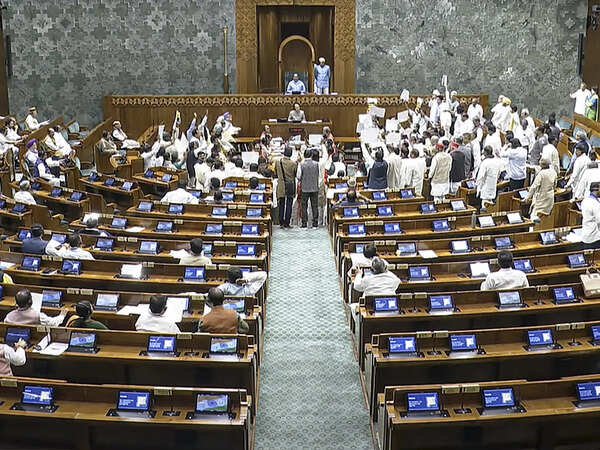
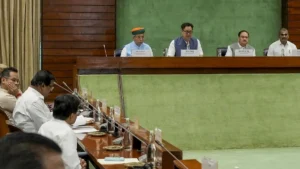
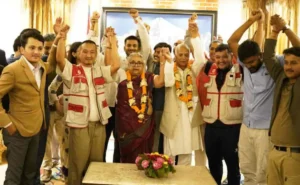
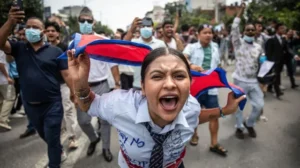
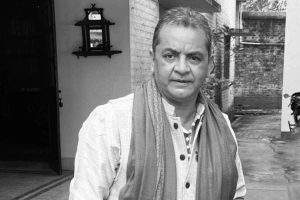


Be First to Comment